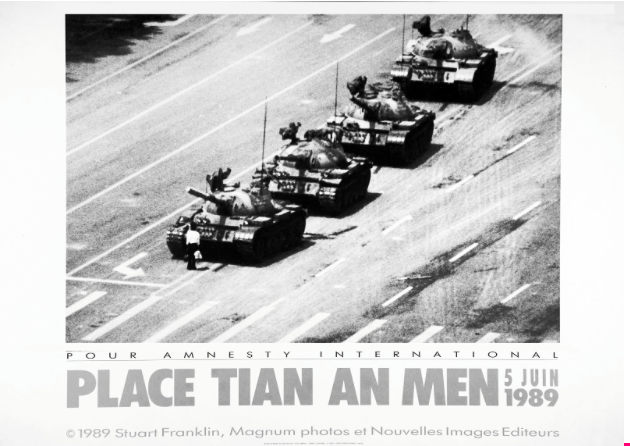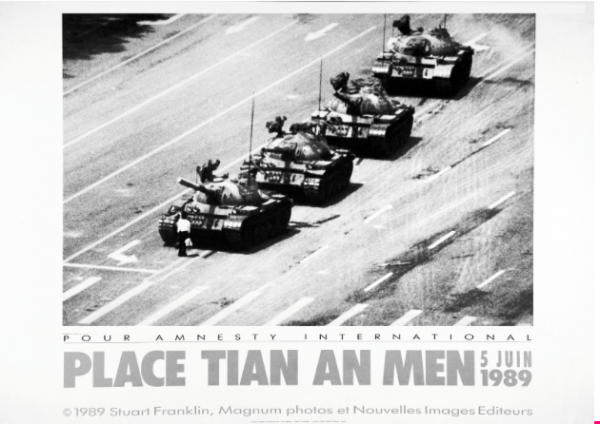I was born on the 16th of August 1988, at Matilda Hospital on Hong Kong Island.
A little while after that in early July of 1989, Chinese authorities, after failing to empty Tiananmen Square of protesters through other means, declared martial law in Beijing. This was the manner in which they resolved to force the protesters – who at one point reportedly numbered more than a million – to leave Tiananmen Square and end the alleged ‘social chaos’ they had incited.
They deployed the People’s Liberation Army. The estimates of how many people they killed range between a few hundred and several thousand. Reliable information is scarce, since most of it has been suppressed.
I’m unsure exactly when I first learned about Tiananmen Square, but I remember what it was like when I did. There was the vision of people being killed arbitrarily, the idea that what you said and what you did could get you in much worse trouble than soap in the mouth. More than anything I remember the bright, shimmering unfairness of it all, and the knot it shoved down my throat.
It was 1995 when my mother brought me and my brothers back to stay in NZ. We were children when we learned about those who coerced people into silence. People liked to remind us how lucky we were to live in New Zealand, where we had a voice, and obviously I valued that. But the overwhelming feeling was never gratitude, I was pissed off. The idea that you should be able to criticise your government is not complicated, freedom of expression is no high demand, it’s basic, and we should treat it as such. ‘Be happy that we live in a country where you can say such things’ as if you should be content just to have the option, should you ever need it, if you ever decide to care enough about something to speak about it. Don’t treat freedom of speech like a television, take it as if it were a part of you, a finger or a limb, and defend it jealously. I’m tired of the apathy that comes with being told to be happy.
I’ve been involved with Amnesty International since I was 15, we had a school group that met every week at Avondale College, Auckland. It was a place I could go to have an outlet for this vague feeling I had, a feeling which is best described as ‘part rage, part ugh’. I can’t say my activism at that stage was very complex, at most times it amounted to sitting in the back of the room, drawing pictures about the case we had chosen to work on. I didn’t want to write letters all the time, please forgive me. My personal favourite was a portrait I wanted to give to George W. Bush, of him in a fez hat. It read “don’t be a cheeky monkey”. It was deemed inappropriate and as such was not sent with the actual letters.
For a long time the most famous image of the Tiananmen Square massacre, the image featuring the ingeniously named ‘Tank Man’, accurately summarised the ideas I had about authoritarian governments and those guilty of rights abuses. There were the powers I knew, the good ones, the ones that didn’t kill unless they had a really good reason and then there were the bad ones, who really just wanted to do bad things in a bad way all the time, just because they were so bad.
Over time things became less simple, the ‘good guys’ became ‘the less bad guys’ then, eventually, they all became ‘guys’. Sometimes it seems that everywhere someone’s doing something that contradicts the assumptions we have about how people should be treated.
Tank Man was inspirational, he stood up to a tank by himself. That takes flair, and a certain disrespect for extremely heavy, movable objects. But when I look at it further I find it hard to feel good about it. It distresses me. It seems less a triumph and more one final angst-ridden scream, just one of many that found the ears they were supposed to, but found them unwilling to listen. This is an image that lends itself to so many contexts, but is it the best image to have in mind when we try to achieve something? Absolutely not. When it comes to standing in front of my tank I pray that I’m not alone, solitude is not a state in which I can see myself making a lot of progress.
The purpose of organisations like Amnesty is not to be the lone person standing in front of the tank, it’s to collect the millions of people around the world who would like to stand there too and put them there. It’s an unfair battle, we don’t have an equal and opposing tank, all we have is whatever moral authority the people that agree with us can supply. So I’d be lying if I told you that the disappointments didn’t outnumber the satisfactions. But I’d also be lying if I told you the satisfactions didn’t make the effort worthwhile, as I would if I told you the disappointments don’t just make me more rabid.
My hope is that one day the words and ideas I have chosen can push someone to make choices that uphold the basic notion that every human deserves to be treated with respect and dignity. It’s in those decisions that I see tragedies like the one that occurred 25 years ago being crafted. They’re in the moments when people could have chosen compassion or patience and instead chose to be jarring and contemptuous. If we can influence the things that go through someone’s mind when it comes to making those decisions, if we can give them these ideas in which to place their esteem, then we can help.
www.amnesty.org.nz/get-involved
Kristian Rusten is the Database Assistant at Amnesty International Aotearoa New Zealand






